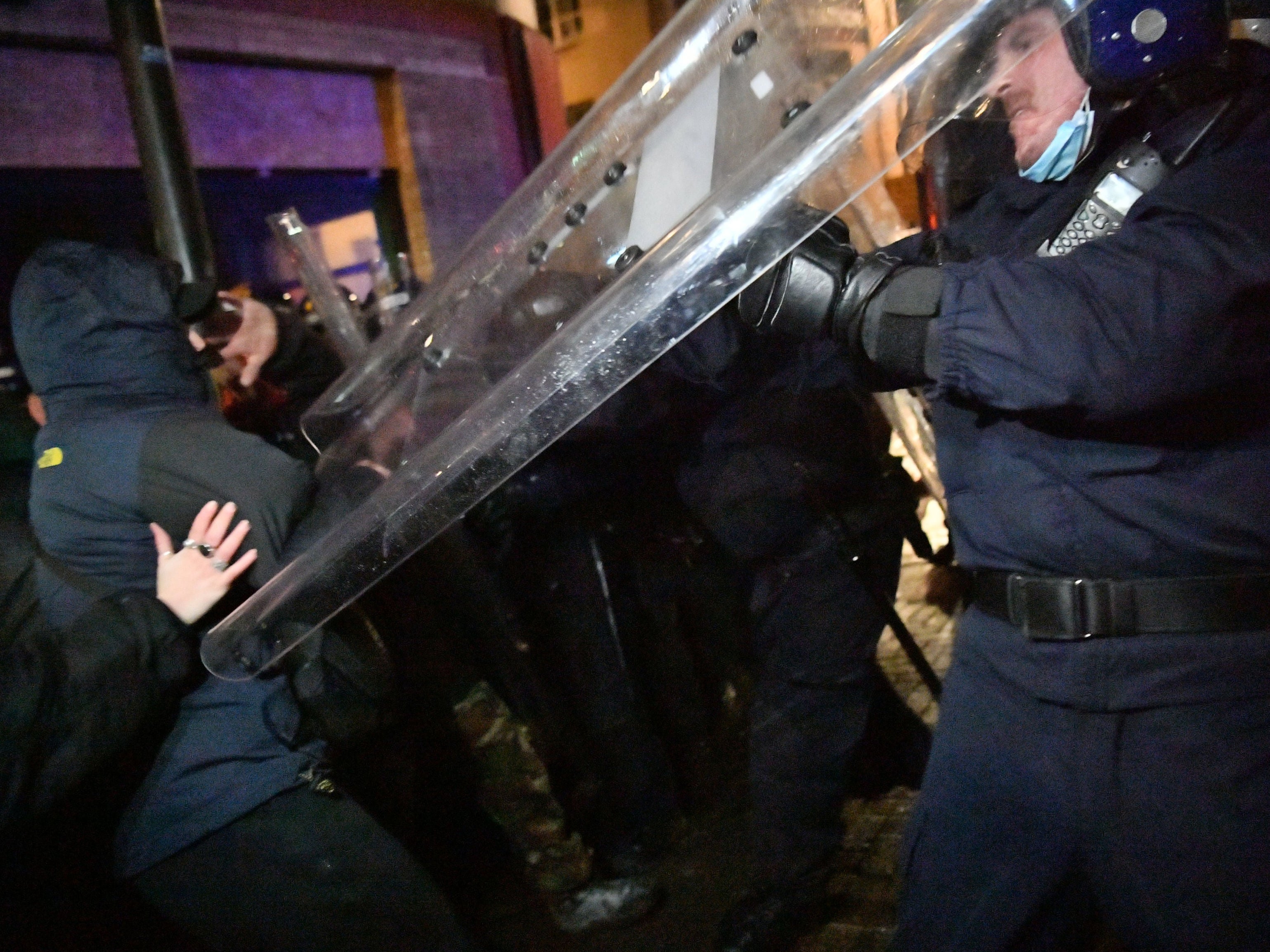UK heading towards ‘paramilitary policing’ under proposed policing protest laws, warns ex-police chief
‘Police chiefs will be seen as the arbiters of what is and is not allowed when it comes to protest,’ says Michael Barton

Your support helps us to tell the story
From reproductive rights to climate change to Big Tech, The Independent is on the ground when the story is developing. Whether it's investigating the financials of Elon Musk's pro-Trump PAC or producing our latest documentary, 'The A Word', which shines a light on the American women fighting for reproductive rights, we know how important it is to parse out the facts from the messaging.
At such a critical moment in US history, we need reporters on the ground. Your donation allows us to keep sending journalists to speak to both sides of the story.
The Independent is trusted by Americans across the entire political spectrum. And unlike many other quality news outlets, we choose not to lock Americans out of our reporting and analysis with paywalls. We believe quality journalism should be available to everyone, paid for by those who can afford it.
Your support makes all the difference.Britain is heading towards a system of “paramilitary policing” under controversial new measures proposed by the government which allow them to flex “their muscles” through officers on the ground, an ex-police chief has warned.
Michael Barton, who was chief constable of Durham constabulary until stepping down in 2019, compared the UK government to “repressive regimes” that exert power via their police.
His remarks to The Observer come after riot police could be seen pushing people to the ground with their shields at Friday night’s protest against the Police, Crime, Sentencing and Courts Bill in Bristol, with at least 10 people arrested and a Daily Mirror journalist the subject of an “assault” by police.
The controversial legislation, which recently passed its first hurdle in House of Commons, would hand police greater power to implement conditions on non-violent protests, with convictions potentially leading to jail time.
Mr Barton, who was in the police for 39 years in total, told the paper: “I’m not in favour of even more restrictive measures. Surely after a historically unprecedented year-long curfew, in peacetime, the government could show some common sense and gratitude for such incredible forbearance to allow civil liberties to once again flourish.
Read more:
- Bristol protester ‘dazed’ after police officer ‘whacked’ him with baton
- Bristol protests: Priti Patel calls demonstrators ‘thugs’ after clashes with riot police lead to 10 arrests
- Riot police break up fresh Bristol protest
- Tory election candidate tweets ‘just bomb Bristol’ following protests
- Why are protesters opposing the policing bill?
- Opinion: The Bristol ‘Kill the Bill’ protest was shocking – but necessary
“Or are they happy to be linked to the repressive regimes currently flexing their muscles via their police forces? Fortunately, in the UK we are not a paramilitary-style police force. But these powers dangerously edge in that direction.
“Police chiefs will be seen as the arbiters of what is and is not allowed when it comes to protest. Democracies thrive on protest. This government has condemned what has happened in the Ukraine but those same protesters would fall foul of our new laws.”
Mr Barton, the former head of national crime operations for policing, said he did not deem there to be “anything wrong” with present laws - adding demonstrations sometimes result in individuals being “inconvenienced”.
Demonstrators could be jailed for up to 10 years for causing “serious annoyance or inconvenience” under the newly proposed laws. The legislation bolsters police powers so they can set noise limits, roll out a start and finish time, and implement such rules on protests carried out by just one person - as well as also breaking up “static protests”.
While Sir Peter Fahy, ex-chief constable of Greater Manchester Police, told The Observer he was “not sure” a “mature democracy” should have police officers choose which protests are permitted.
“Policing should be very careful not to be drawn into the situation of being arbiters of which protests can go ahead, and become stuck in the middle,” he added. “The policing of protest can cause long-term damage.”
But a spokesperson for the Home Office said it’s incorrect to say the proposed measures stop people from “carrying out their civic right to protest”.
“People will still be able to protest, but they cannot be permitted to trample on the rights of local businesses and communities,” the government representative added.
“These measures will prevent misery to the public and the loss of millions of pounds to the taxpayers and businesses, have been requested by chief constables, including the Met, and are backed by the Independent Policing Inspectorate.”
Labour recently warned the legislation could lead to harsher penalties for damaging a statue than attacking a woman - with David Lammy, the shadow justice secretary, dismissing the 300-page bill as a “mess”.
Earlier in the month, the police faced heavy criticism over their heavy-handed response to a vigil to mourn Sarah Everard. Dame Cressida Dick, the Met commissioner, had to rebuff calls to step down after her officers grabbed women standing on Clapham Common’s bandstand in South London before taking them away while others at the vigil screamed and cried out.
While The Independent recently reported on how new plans for plainclothes police officers to patrol bars and nightclubs to safeguard women from predatory men unveiled by the government have sparked outrage.
The controversial plans were announced in response to mounting criticism the government is not doing enough to tackle violence against women in the wake of the tragic death of Everard.
Join our commenting forum
Join thought-provoking conversations, follow other Independent readers and see their replies
Comments